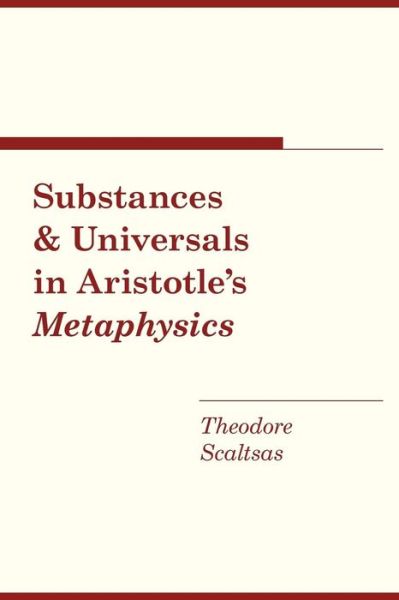Substances and Universals in Aristotle's ''Metaphysics'' epub
Par kepler sarah le mercredi, avril 20 2016, 03:06 - Lien permanent
Substances and Universals in Aristotle's ''Metaphysics''. Theodore Scaltsas
Substances.and.Universals.in.Aristotle.s.Metaphysics..pdf
ISBN: 9780801476358 | 308 pages | 8 Mb

Substances and Universals in Aristotle's ''Metaphysics'' Theodore Scaltsas
Publisher: Cornell University Press
Jul 29, 2012 - Aristotle's Metaphysics: On Causality The same is true to one man by the name of Aristotle, in that he was “man of experience” to recognize things as they were and a “man of art” to know why these things were. Ithaca: Cornell University Press. Feb 15, 2014 - It is also from this exploration of what substance might actually be, the definition of which represents a good chunk of Aristotle's Metaphysics, that our word for “essence” ultimately derives. Liberals contextualized Scripture historically, but they imposed a stable structure that spanned history: a gradual progression toward a more enlightened and universal message. Beginning of the bifurcation that characterized our collective, individually mutual exclusive and yet at the same time fundamentally interdependent (according to the Eastern philosophical systems at least), universal reality that defined the world in which we all lived and breathed. Sep 29, 2009 - Aristotle (metaphysics, wiki, forked, Proteus). A persistent attribute of Western thinking is the “metaphysics of presence.” Truths are eternal, but in temporal human existence the eternal manifests itself as presence. Point the finger to divine beings, or being and that to stop the infinite regress, the first cause must be attributed to God, and this is in the realm of divinity, in which causes within the level of humans of particular and that to God is universal and is the ultimate. Aug 24, 2012 - Just for fun, let's make things as needlessly controversial as we can: The theory of evolution cannot explain metaphysical living things, which can only arise by the intention of mind. Mar 22, 2011 - With a view to action, experience (knowledge of individuals) is not inferior to art (knowledge of universals), and men of experience succeed better than those with theory but no experience, for actions are concerned not with the universal but with the individual. Substances and Universals in Aristotle's Metaphysics. The claim is either obvious or Aristotle's simplest account is that every science leaves certain things out: physics does not study the Pythagorean theorem (even if it uses it); mathematics does not deal with the genes (even if it is relevant to their study), etc. Humans live in the present; therefore any eternally true idea has to make itself known in the present. Aristotle was the first to treat many of the subjects we know separately, from Metaphysics, Logic and . And yet people In one sense, a cause is the substance or essence, in another the matter or substratum, in a third the source of the change, and in a fourth the purpose or the good that it serves. Aristotle (384-322 BC) was a major Greek thinker in Ancient Philosophy, a student of Plato (who was student of Socrates) and a teacher of Alexander the Great.
Code of Practice for Grid-connected Solar Photovoltaic Systems book download
